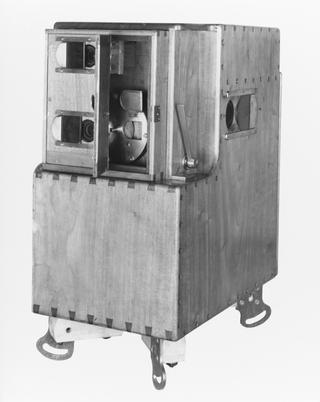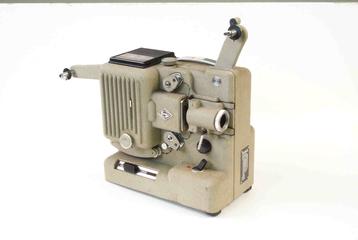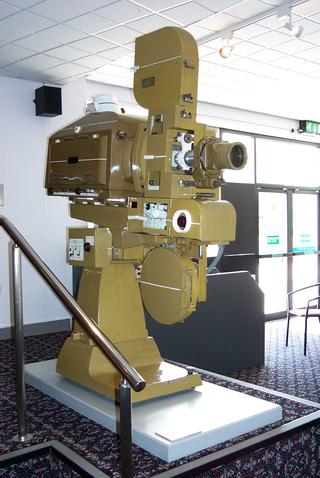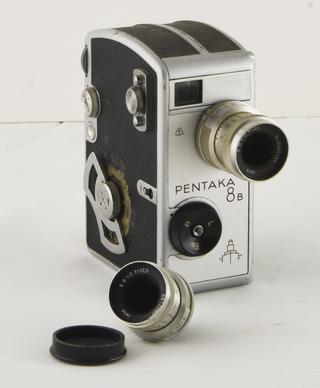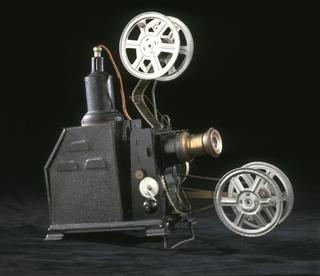
Robert Paul's Theatrograph Projector No 2 Mark 1
- maker:
- Robert William Paul
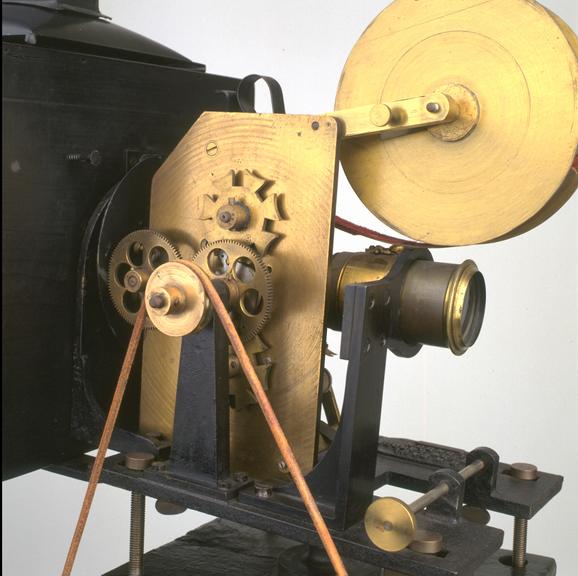
Early projector unit for Paul Kinematograph apparatus, seven star, March 1896 type. Cast metal plaque on front left side of projector mechanism base plate 'RW PAUL / HATTON GARDEN / LONDON'. Replicas of lamphouse, driving handle, film spool and lens system.
Robert Paul demonstrated this, the first 35mm film projector commercially produced in Britain at Finsbury Technical College, London on 20 February 1896, the same day as the preview showing of the Cinématographe Lumière in London.
This projector is no. 2, the second, improved model, patented on 2 March 1896, which originally sold for £80. Over 100 were produced and sold. With its intermittent motion provided by sprocket rollers driven by a Maltese Cross mechanism, this machine formed the prototype for the modern film projector. Paul designed and made five different models of his Theatrograph and produced over 800 films before quitting the film business in 1910.
Details
- Category:
- Cinematography
- Object Number:
- 1913-549 Pt1
- Materials:
- brass (copper, zinc alloy), steel (metal), tin (metal), glass, velvet and wood (unidentified)
- Measurements:
-
overall (projector): 550 mm x 310 mm x 690 mm,
overall (on pedestal): 1400 mm x 440 mm x 760 mm,
- credit:
- The National Media Museum, Bradford
